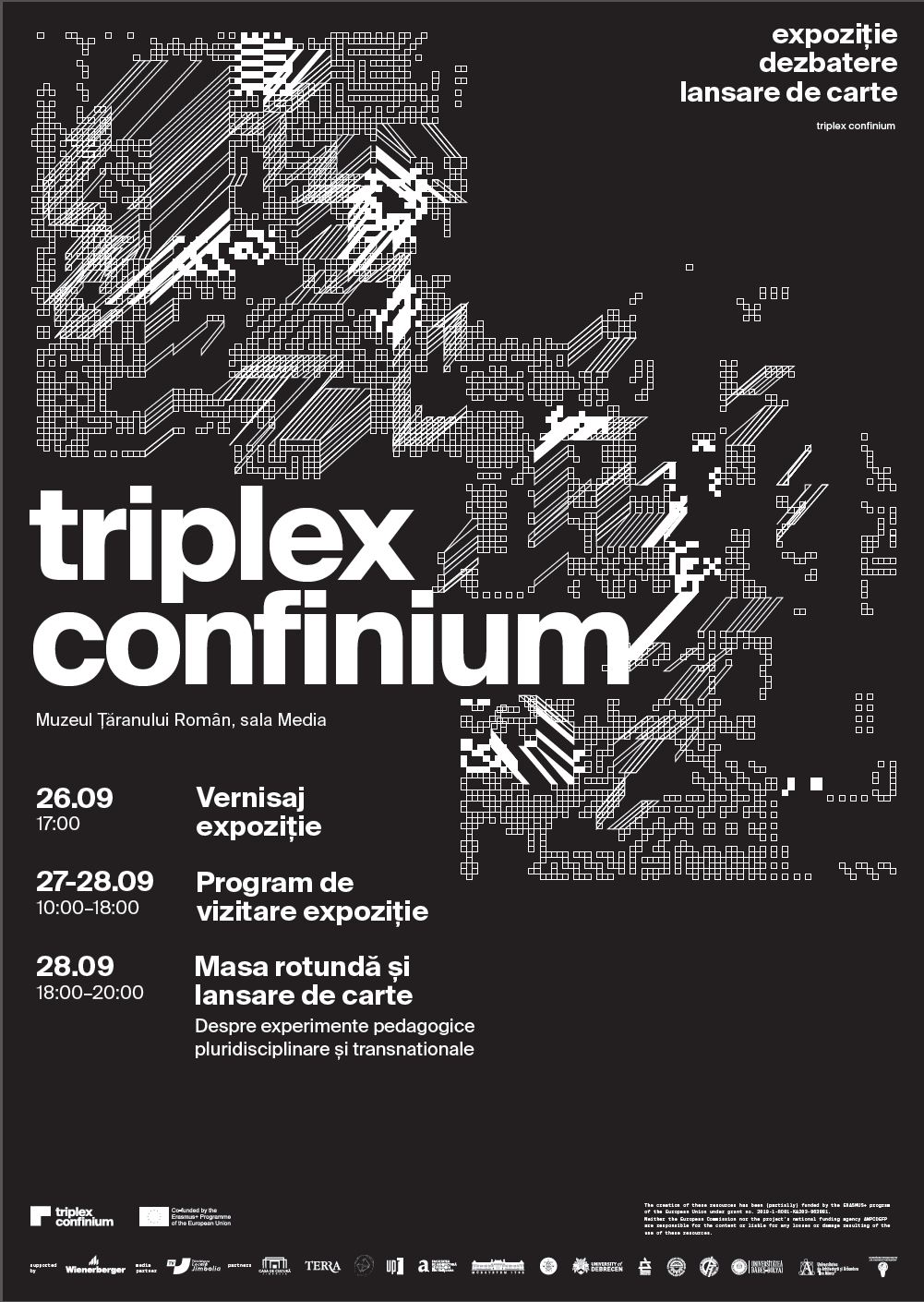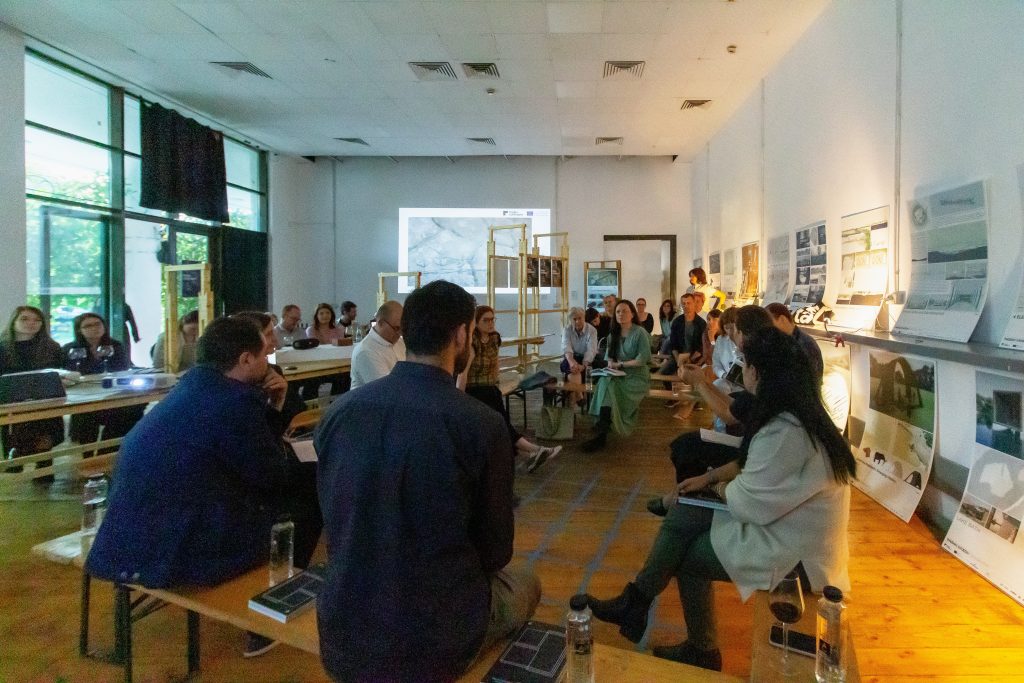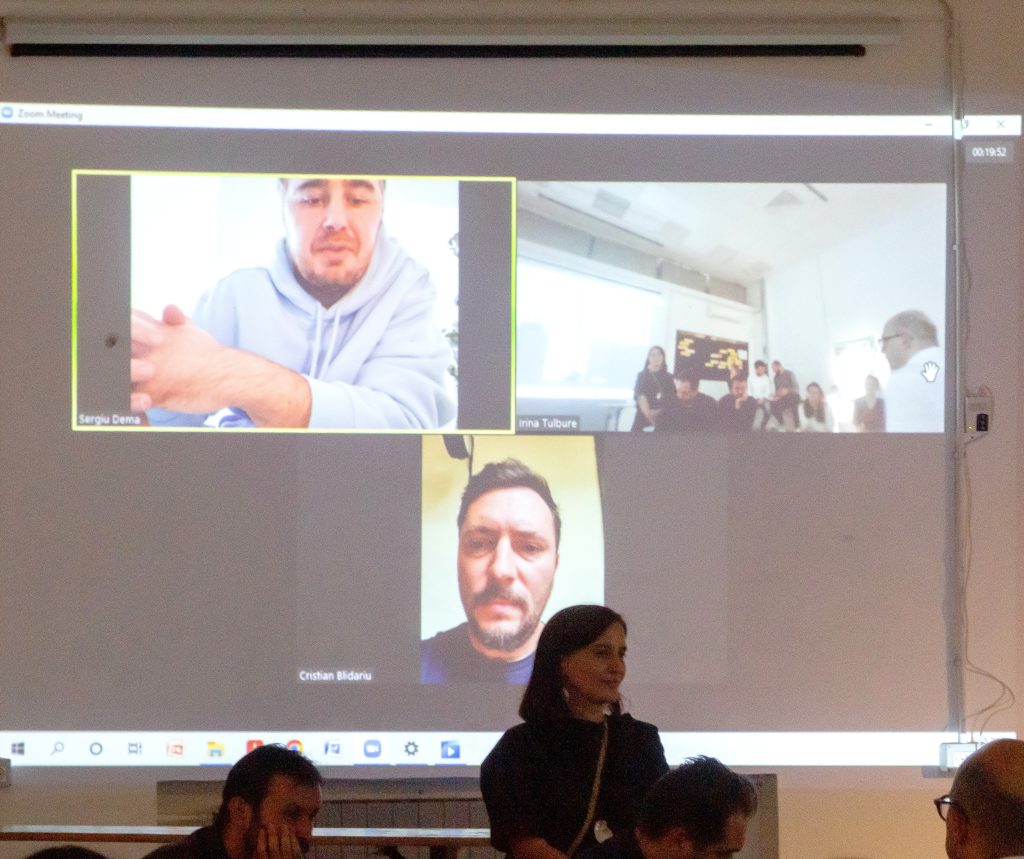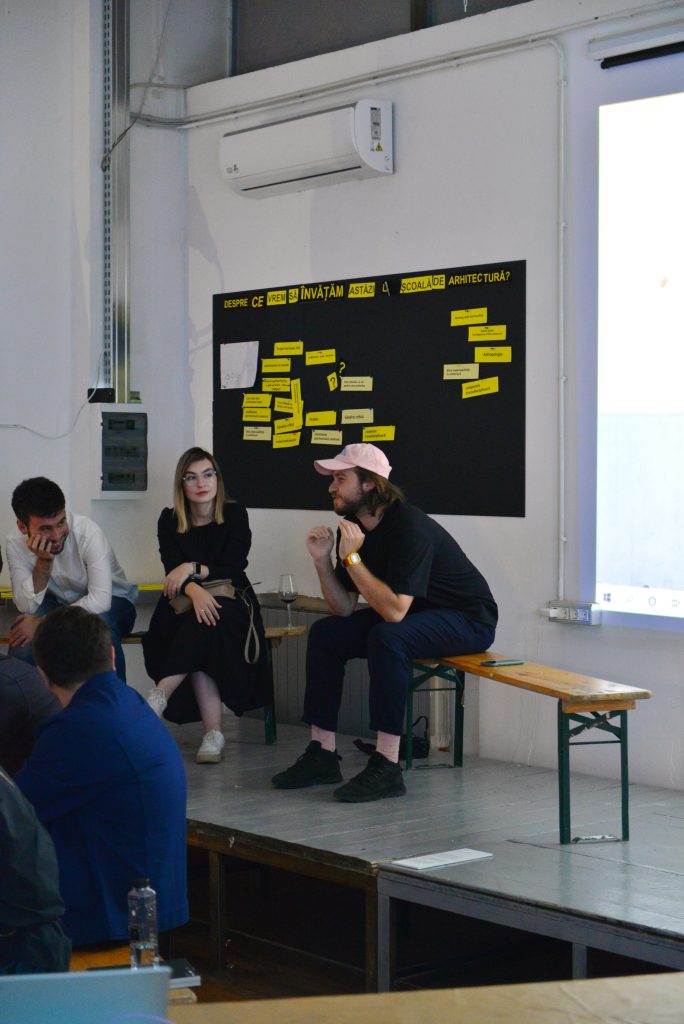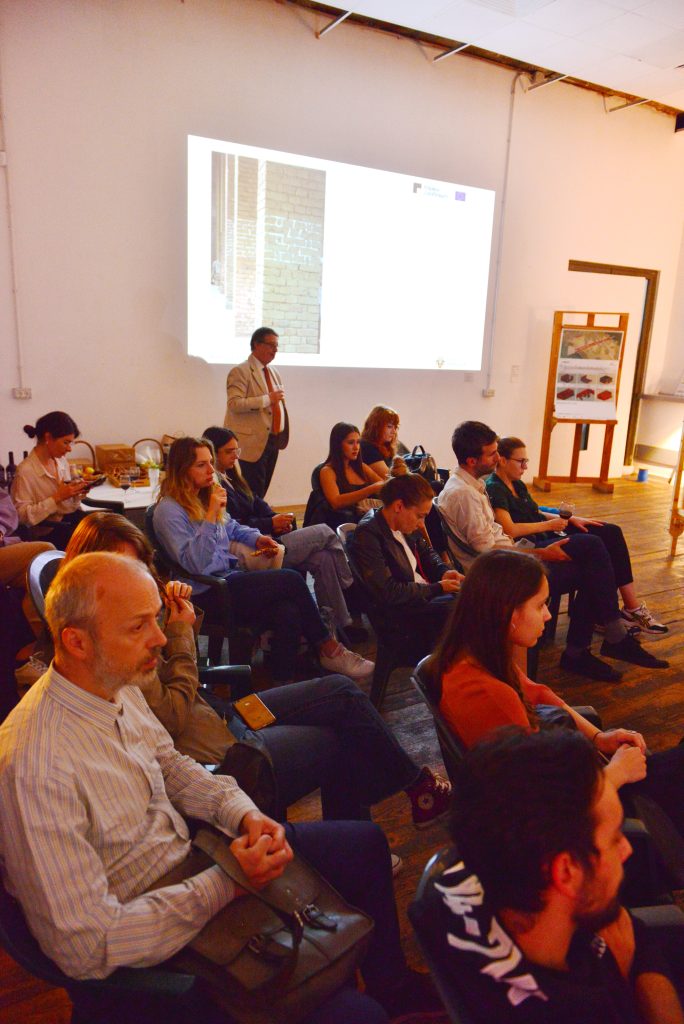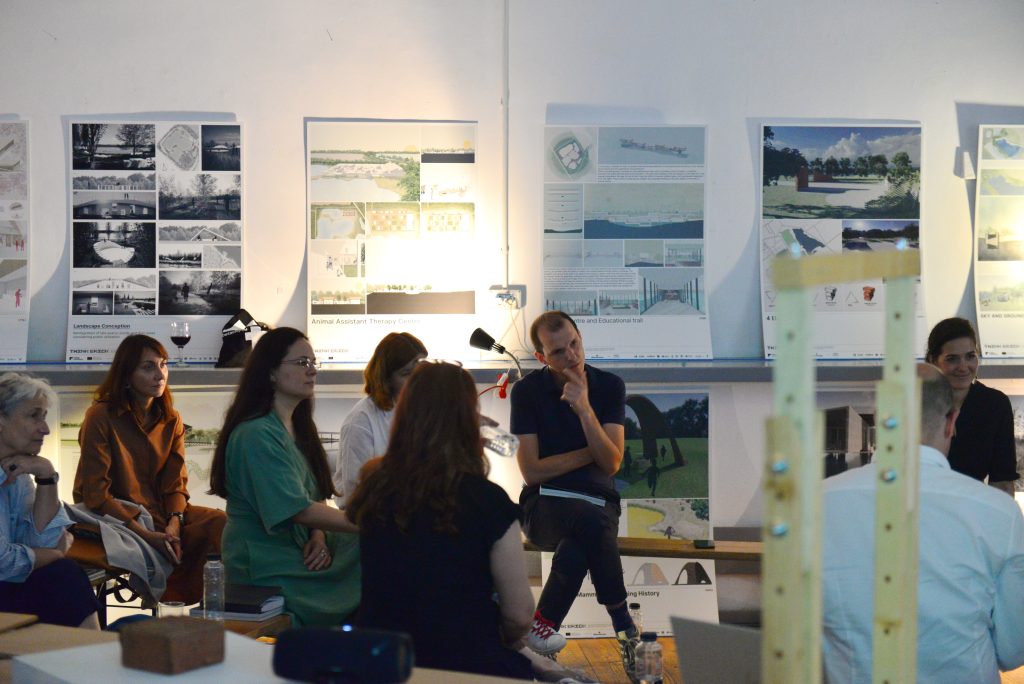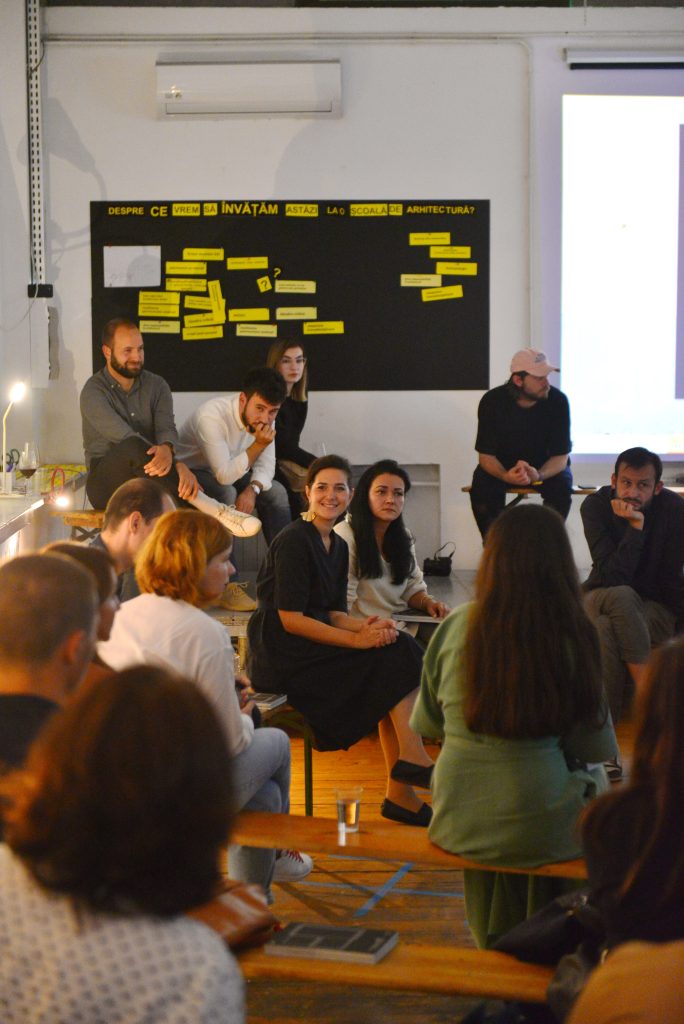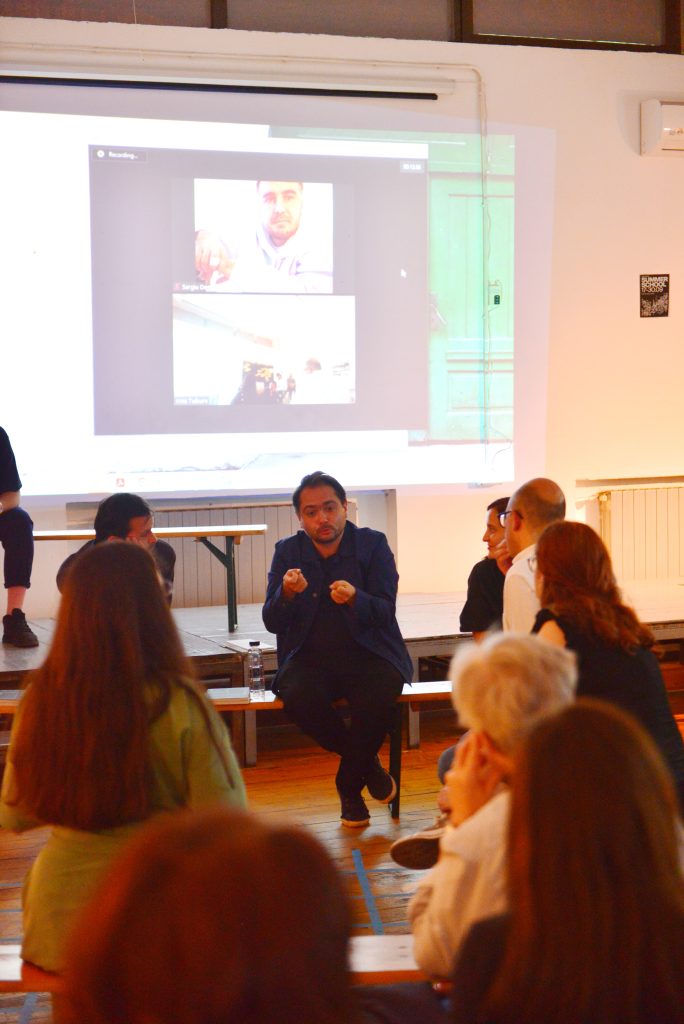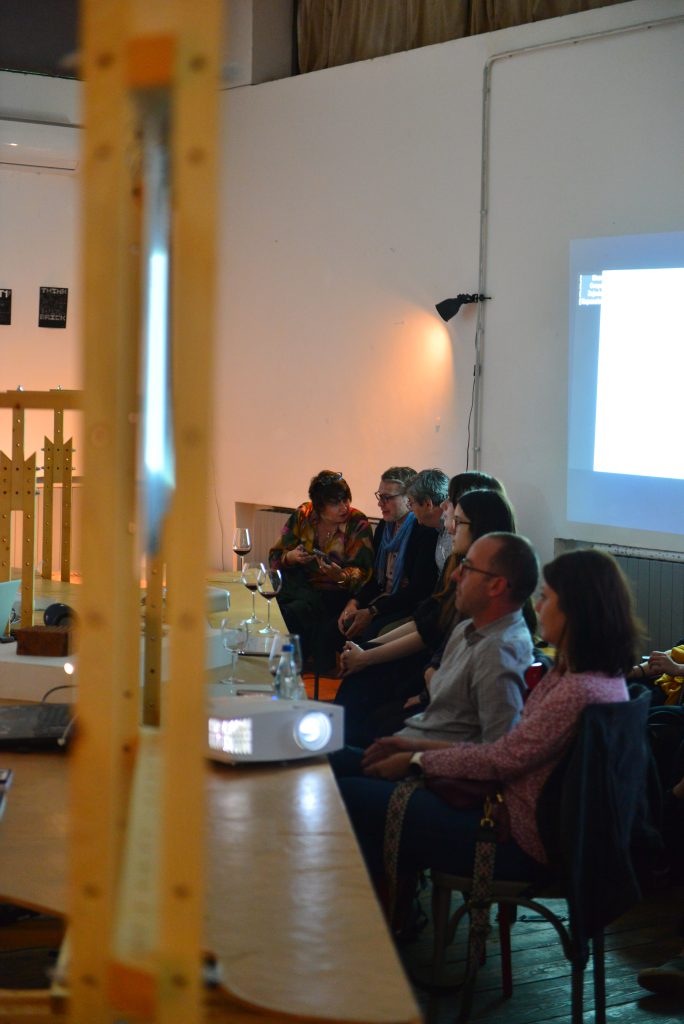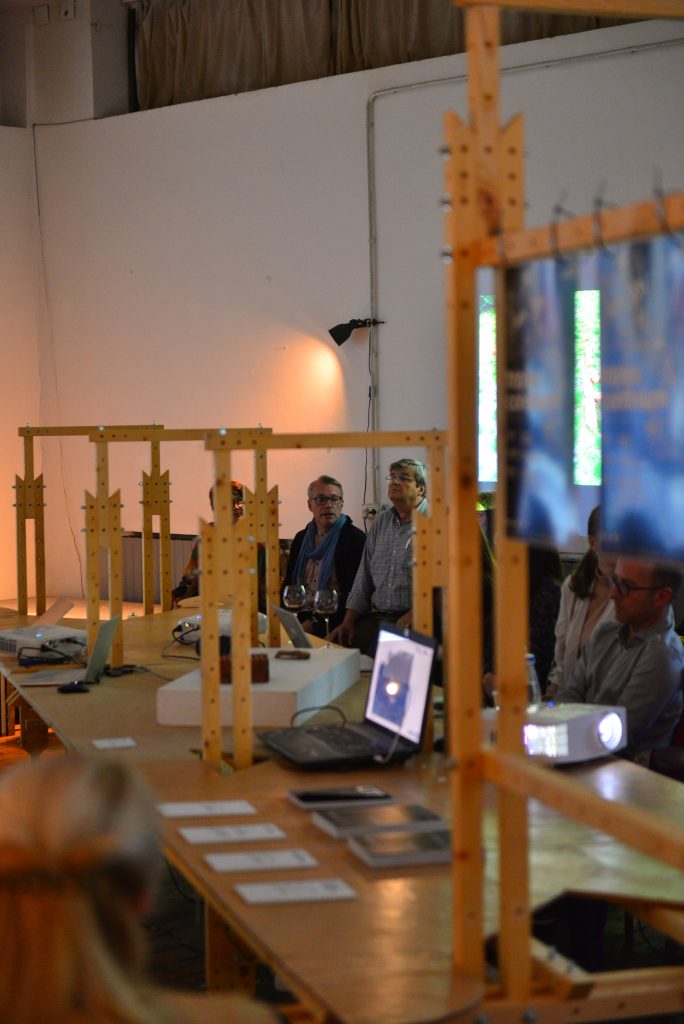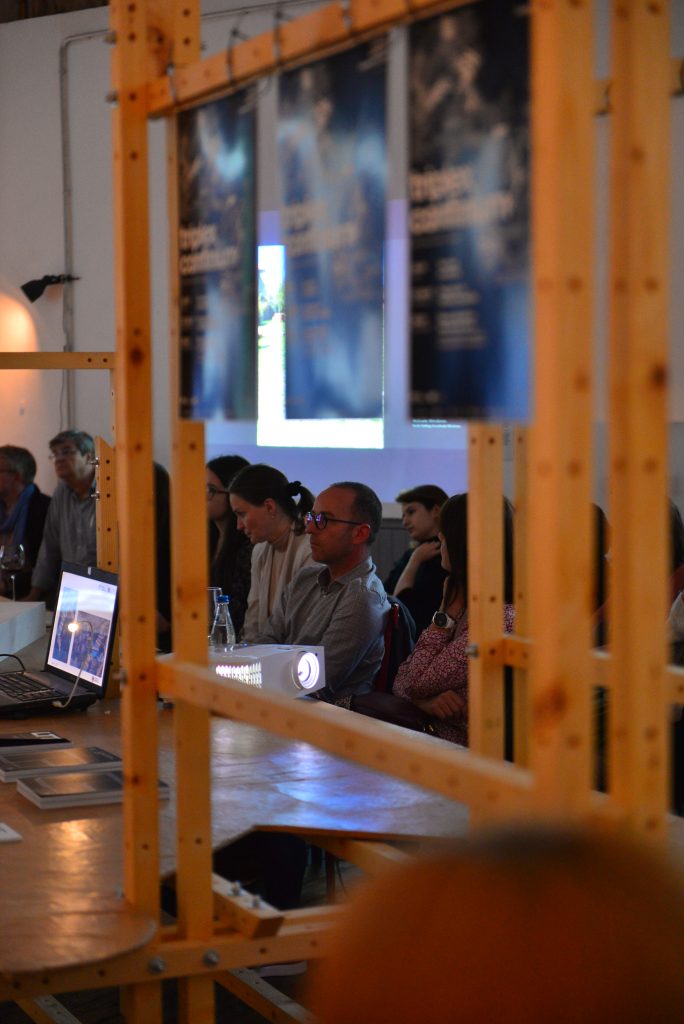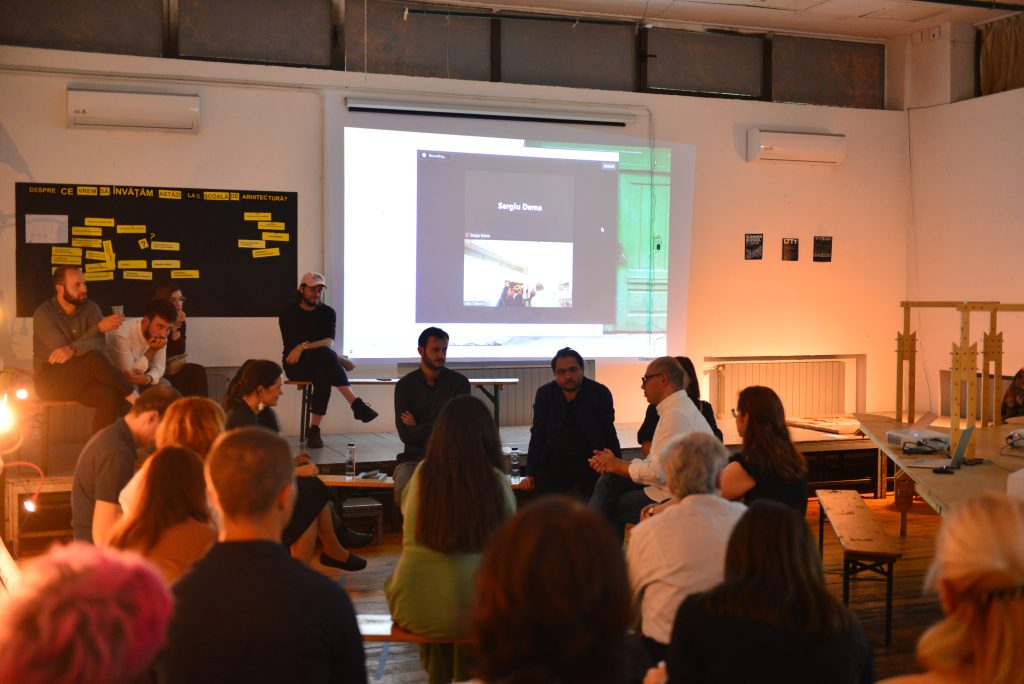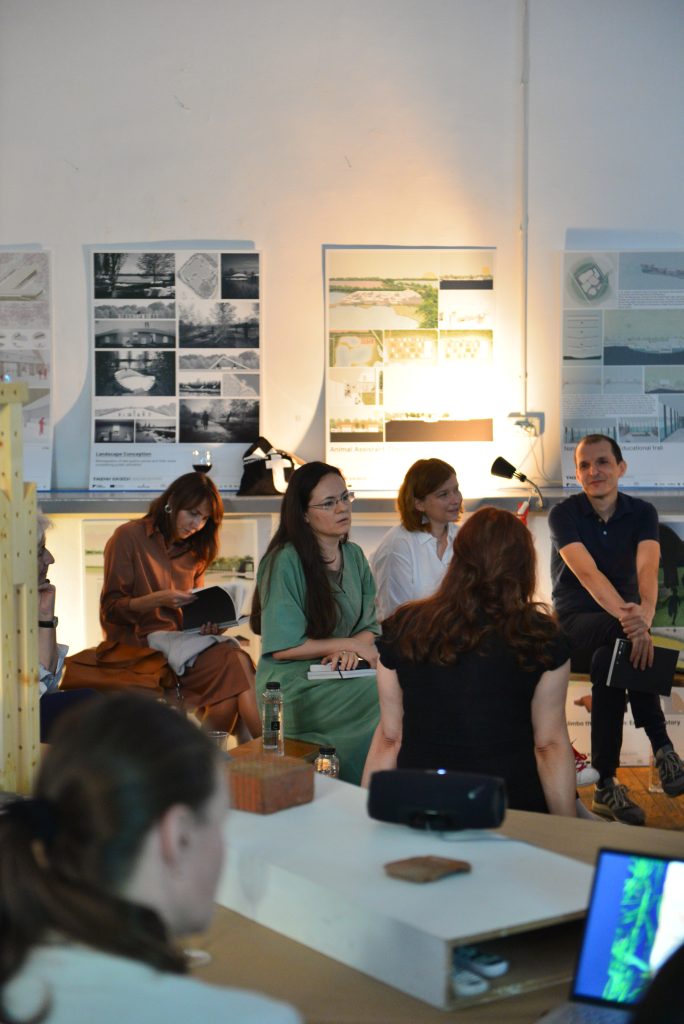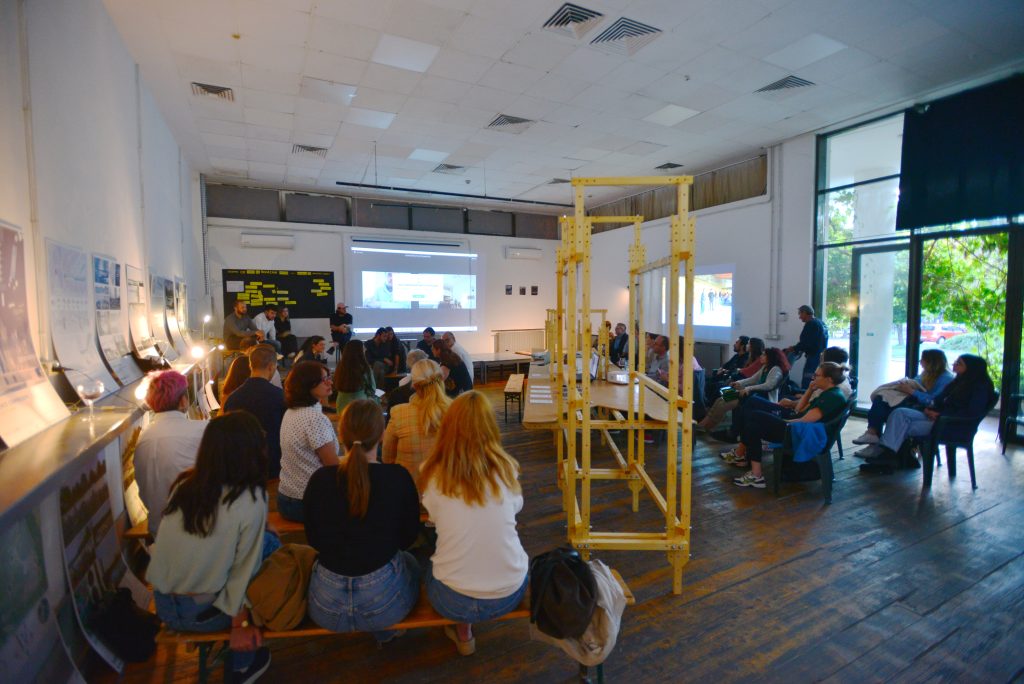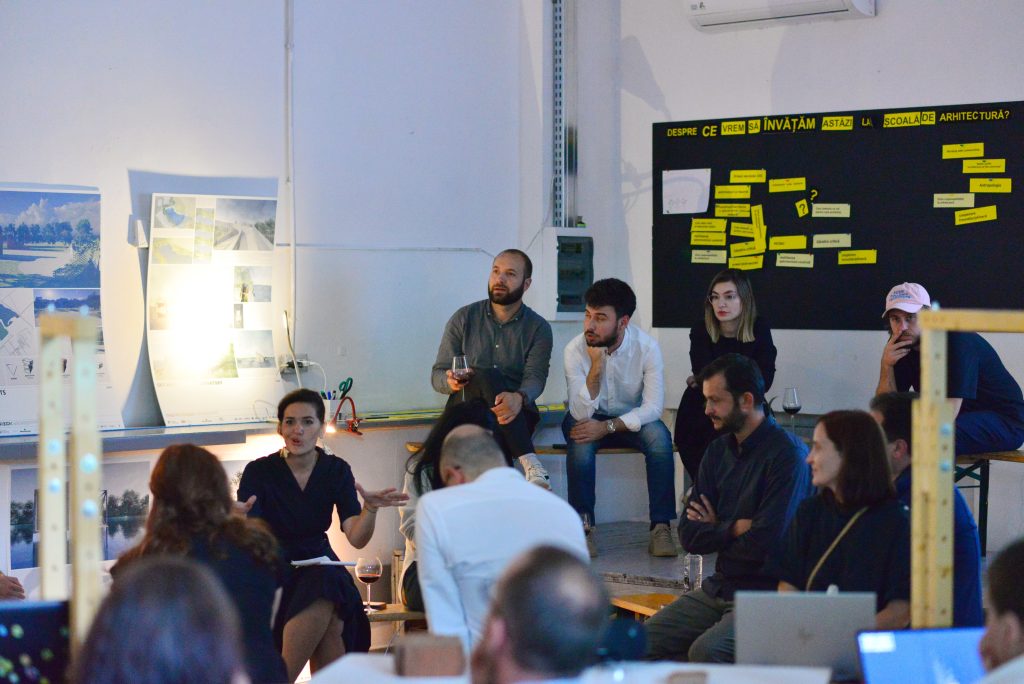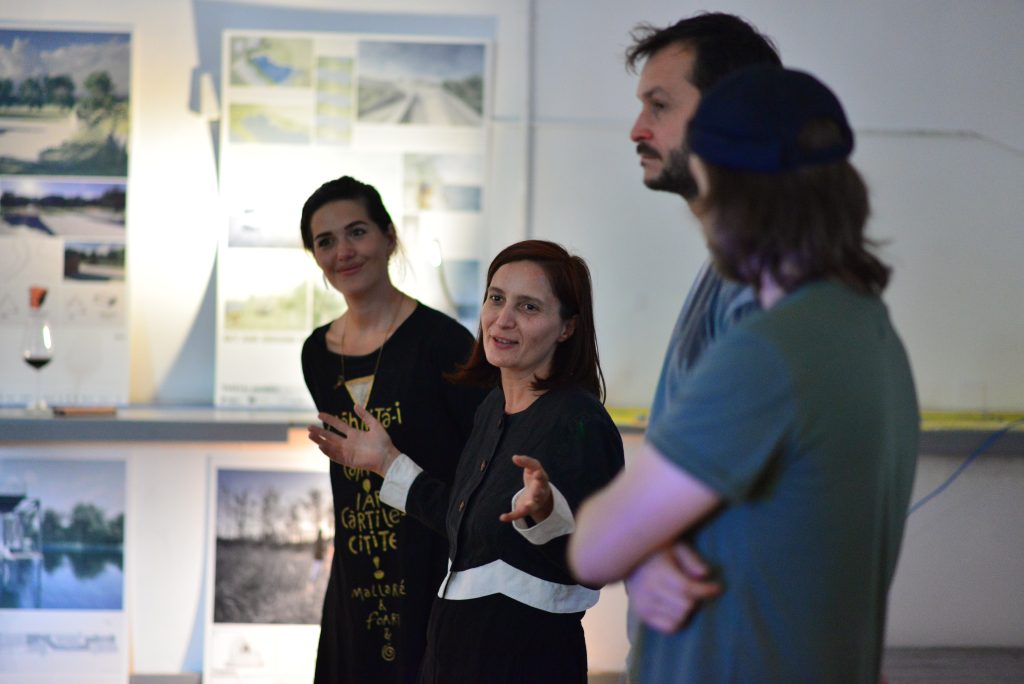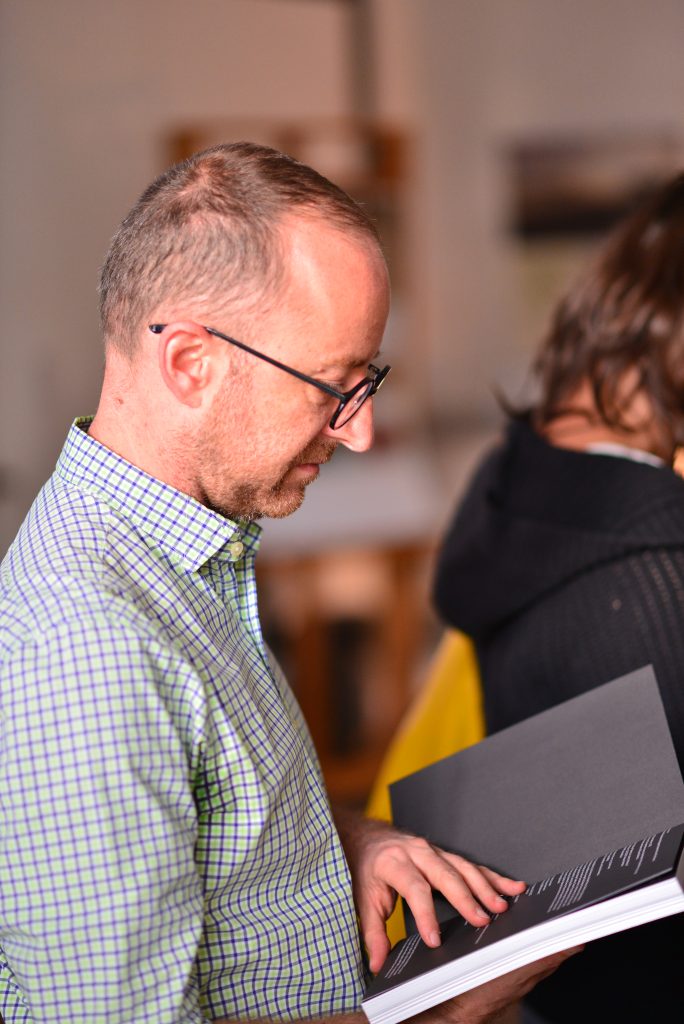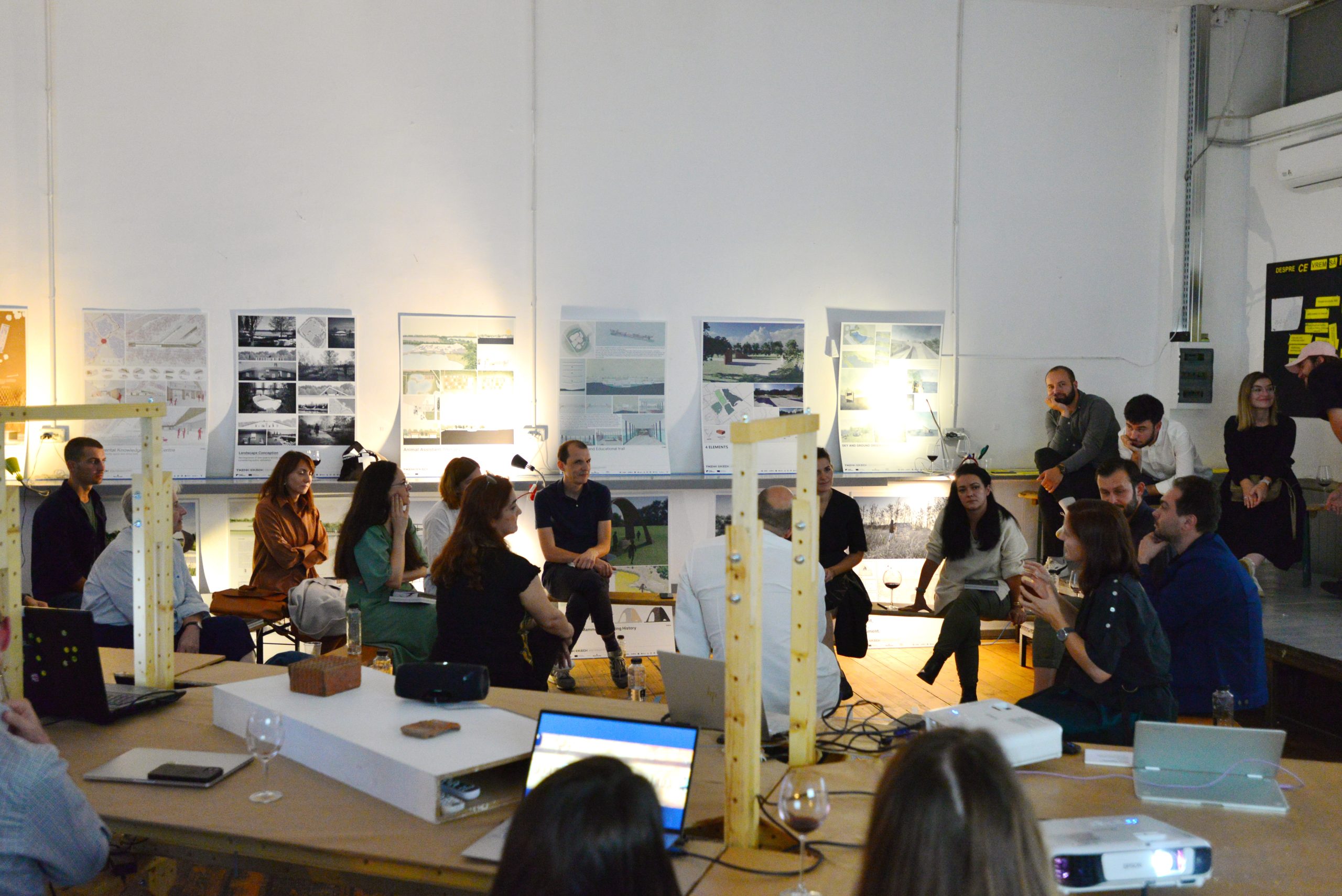
Exhibiting Triplex Confinium in Bucharest! How to better speak about a three year long project than by the means of an exhibition and public talk?
Between 27-29th of October the UAUIM team (Alexandru Belenyi, Irina Tulbure, Ilinca Păun-Constantinescu, Irina Băncescu, Cristian Borcan, Cristian Bădescu) organized and presented at The National Museum of the Romanian Peasant the closing exhibition of the Triplex Confinium project, which ended with a public debate concerning different aspects of education.
We were very happy to have with us, through their online interventions, Cristian Blidariu (Associate Professor PhD. Cristian Blidariu, FAUT – main leader of the project) and our emphatic companion along the Triplex Confinium experience, Sergiu Dema (historian, Director of the House of Jimbolia House of Culture).
We were honored to have as guest speakers notable members of the academia and professionals with experience in teaching, alongside the members of the organizing UAUIM team. At the same time, we were touched by the large presence of the public and the positive reactions of all the participants at the venue, be them students, educators or professionals in the fields of architecture, arts, sociology, anthropology.
The opening of the exhibition was addressed to a specific public (students, invited through the official UAUIM site and through student networks) emphasizing especially the relevance of the Erasmus+ mobility experience and also contextualizing the specificity of the Erasmus + Partnerships among other types of Erasmus Mobilities. The UAUIM students who experienced Jimbolia and Kikinda summers schools, were our help in being guides for the other participants.
Beside the results of the Think Brick competition, the exhibition was based on dynamic projections picturing the experiences from the two Summer Schools (Jimbolia and Kikinda) and the spectacular artistic experiments of both Hungarian schools of architecture (Budapest and Debrecen). The relief clay panels, the actual products of the UNS workshop, Think Brick. Say Clay, held in Kikinda, had a particular place in the exhibition together with the publications issued during the projects.
Moreover, the exhibition was intended to represent the background for two additional events, and two different goals. First of all, the debate, having as starting point ideas developed during the program, served as a dissemination tool and it was addressed to a group of academics with similar interests and preoccupations, facilitating also – through the public discussion – the dissemination of several issues tackled the Triplex Confinium project. The guests of the UAUIM team, for the debate were representative for different professional areas: architecture, sociology and anthropology: Ștefan Ghenciulescu (member of the Think Brick Competition /Triplex Confinium), Oana Suciu (Faculty of political Science, Bucharest – FSPUB), Damiana Oțoiu (Faculty of political Science, Bucharest – FSPUB), Andra Mitia Dumitru (ATU, member of DANURB project, also an Erasmus + partnership), Mirona Craciun (Order of Romanian Architects, OAR, Competitions).
The book release had as goal the dissemination of the published material to the participants at the event (academics: students, phd. students, professors; NGO and others). The UAUIM team is grateful for the presence and for the interest manifested in the project of Marina Hasnas (New Europe College, Bucharest), Celia Ghyka (Chief of History and Theory of Architecture and Heritage Conservation Department and of the Erasmus + Department, at UAUIM), Melania Dulămea (Chief of the Department Basics of Architectural Design, UAUIM), Georgică Mitrache (Vice-Rector, UAUIM), Horia Moldovan (Dean of Faculty of Architecture, UAUIM), Florin Poenaru (Faculty of Sociology and Social Work, University of Bucharest), Mirela Duculescu (Director of the History and Theory of Art Department, UNARTE, Bucharest), Irina Calotă (Assistant Professor, History and Theory of Architecture and Heritage Conservation, UAUIM), Irina Meliță (Vice-Director of Communication Department, OAR, Bucharest), Ștefan Simion (Associated Professor, UAUIM).
The UAUIM team warmly salutes also the presence of Irena Radojicic (First Counsellor at the Embassy of the Republic of Serbia) and of our host, Virgil Ștefan Nițulescu (Manager of the National Museum of the Romanian Peasant).
We hope for the Phd. Students, former students, young researchers present at the event, had found inspiration in the debates and that the event opened paths for further collaboration.
